Explore Houston University of Texas’s Eligibility Criteria for Students Worldwide
High School Diploma, GED or equiv. International Education
144 Hours
4 Year (Self-Paced) Program
24
The course explores philosophic and artistic heritage of humanity expressed through a historical perspective on visual arts, music, and literature. Topics include myth, literature, art, music, television, cinema, and the theater. Also discussed are provocative issues in the humanities - religion, morality, happiness, death, freedom, and controversies in the arts.
Social and Cultural Geography considers why geography matters to the analysis and understanding social relations, cultural identity and social inequality. Course examines how social life is structured at a variety of scales with respect to ethnicity, industries, services, urban patterns, and resources of world as a whole.
English Composition provides you with rhetorical foundations that prepare them for academic and professional writing. You will learn the strategies and processes that successful writers employ as you work to accomplish specific purposes. You will develop skills in writing unified, coherent, well-developed essays using correct grammar and effective sentence structure.
College Algebra provides an overview of the fundamental concepts of algebra: an understanding of the general concepts of relation and function; and the ability to solve practical problems using algebra.
World Religions course offers the broadest coverage of world religions as they exist today; helping you understand the ideology behind the many religions that strive today. While it is impossible to cover all religions, it does cover those of the vast majority of people.
Evenly balanced between theory and applications, this course shows you how to establish an ethical theory and how to apply it to a range of specific moral issues. This course examines ethical problems in such areas as mercy killing, personal relations, business, sexuality, medicine, and the environment.
This course introduces the origins and historical development of art. Emphasis is placed on the relationship of design principles to various art forms including but not limited to sculpture, painting, and architecture. Upon completion, you should be able to identify and analyze a variety of artistic styles, periods, and media.
This course provides the mathematical foundation for an introductory calculus course. In addition to a brief review of basic algebra, the course covers equations and inequalities; functions, models, and graphs; polynomial and rational functions; exponential and logarithmic functions; trigonometric functions; and trigonometric identities and equations.
This course is an introductory study of the human body, including the basic structure and function of the major organ systems (nervous, endocrine, circulatory, reproductive, etc.) and the effects of diet, exercise, stress and environmental change on human health.
World History course present the big picture, to facilitate comparison and assessment of change, and to highlight major developments in world's history. This course emphasizes the global interactions of major civilizations so that you can compare and assess changes in the patterns of interaction and the impact of global forces.
This course provides a sociological perspective on crime and criminal justice by treating social structure and social inequality as central themes in the study of crime and major factors in society's treatment of criminals.
Sociology is a comprehensive course that offers you a global perspective to help you better understand your own lives, provides strong focus on social diversity that allows you to see the impact of race, class, and gender, and focuses
This course examines corrections from an academic view and from those who are at the center of the system. It includes correctional history and theory, yet concentrates on what professionals do, why they do it, and the challenges they face every day.
This course contextualizes current events within the criminal justice literature. Highlighting a variety of high-interest issues, it explains you how recent happenings relate to criminal justice studies.
This course explains the procedural aspects of the criminal justice system systematically, making the concepts easy to apply to any state’s specific procedural laws and procedures systematically.
This course presents crime detection as a dynamic field relying heavily on the past experiences of investigators as well as recent practical and technological innovations.
This course builds the procedural knowledge and real-world skills needed for today’s paralegal. It places an emphasis on profession and skills. Places an emphasis on basic foundations including: developing critical thinking and procedural skills; learning about technology applications in law office; and understanding how to handle ethical situations in workplace.
This course makes the comparative approach far more understandable and accessible, helping you recognize the growing importance of an international perspective. It organizes key concepts in a sequence that you will already find familiar; progressing from issues of law to the agencies of police, courts, and corrections.
Data recovery techniques can prove to be very useful skills in investigating a cyber criminal activity. This course will cover advanced data recovery methods and techniques. Various hardware and software issues will also be discussed in this course.
This course will empower you to understand the basics of network defense and introduce them to the fundamental tools and techniques used in this regard. The course will cover how to develop a secure baseline and 'harden' your enterprise architectures from the most advanced attacks.
This course introduces the fundamental principles of computer crime investigation processes. Topics include crime scene/incident processing, information gathering techniques, data retrieval, collection and preservation of evidence, preparation of reports and court presentations.
This course covers the applicable technological laws dealing with the regulation of cyber security and criminal activity. Topics of this course include an examination of Legacy Systems Integration, Electronic Commerce Tools, Copyright Law Basics and Copyright Infringement.
This course explores the ethical dilemmas that exist where human beings, information objects, and technology interact. The course introduces you to a variety of ethical models from historical perspectives and then explores the relevance of these models to a variety of new and emerging technologies.
This course introduces and explains the various types of offenses that qualify as cyber crime activity. Emphasis is placed on identifying cyber crime activity and the response to these problems from both the private and public domains.
| Tuition Fee Breakdown | Cost |
|---|---|
| BACHELORS DEGREE | $31,680 |
| Medical Insurance | $0.00 |
| Personal Expenses | $0.00 |
| Study Materials | $0.00 |
| Food Cost | $0.00 |
| Total Tuition Fee | $31,680 |
At Houston University of Texas, we champion the convergence of affordability and opportunity. Our steadfast commitment to accessible education guarantees that high-quality learning is accessible to all. By eliminating financial obstacles, we grant students the freedom to thrive without the burden of overwhelming tuition costs, empowering them to carve out a bright and promising future.

| Topics Covered in This Course: | |||||||||||||||||||||||||||||||||
|
| Topics Covered in This Course: | |||||||||||||||||||
|
| Topics Covered in This Course: | |||||||||||||||||||||||||||||||||||
|
| Topics Covered in This Course: | |||||||||||||||||||||||||||||||||
|
| Topics Covered in This Course: | |||||||||||||||||||||||||||||||
|
| Topics Covered in This Course: | |||||||||||||||||||||||||||||||||||||
|
| Topics Covered in This Course: | |||||||||||||||||||||||||||||||||||||
|
| Topics Covered in This Course: | |||||||||||||||||||||||||
|
| Topics Covered in This Course: | |||||||||||||||||||||||||||||||||
|
| Topics Covered in This Course: | |||||||||||||||||||||||||||||||||||||||||||||||||||||||||||||||||||
|
| Topics Covered in This Course: | |||||||||||||||||||||||||||||||||||||||
|
| Topics Covered in This Course: | |||||||||||||||||||||||||||||||||||||||||||||||||||||
|
| Topics Covered in This Course: | |||||||||||||||||||||||||||||||||||||
|
| Topics Covered in This Course: | |||||||||||||||||||||||||||||||
|
| Topics Covered in This Course: | |||||||||||||||||||||||||||||||
|
| Topics Covered in This Course: | |||||||||||||||||||||||||||||||||||||||||||||||||||
|
| Topics Covered in This Course: | |||||||||||||||||||||||||||
|
| Topics Covered in This Course: | |||||||||||||||||||||||||
|
| Topics Covered in This Course: | |||||||||||||||||||||||
|
| Topics Covered in This Course: | |||||||||||||||||||||||||||||||||
|
| Topics Covered in This Course: | |||||||||||||||||||||||||||||||
|
| Topics Covered in This Course: | |||||||||||||||||||||||||||||||||||||||
|
| Topics Covered in This Course: | |||||||||||||||||||||
|
| Topics Covered in This Course: | |||||||||||||||||||||||||||||||||
|

We specialize in providing online education solutions for students worldwide who are balancing studies and professional commitments. Our mission is to make quality education accessible to everyone, regardless of location or schedule constraints
Discover More
Get Substantial Career Growth With Our Accredited Degree Programs.